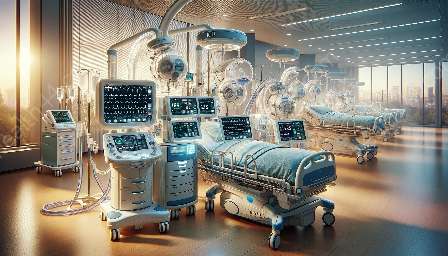Electrocardiogram (ECG or EKG) machines play a crucial role in modern medical care, especially in life support systems. These devices, used to measure the electrical activity of the heart, are essential in monitoring patients' cardiac health. Understanding the technology, functions, and compatibility with other medical devices is essential for healthcare professionals. Explore the comprehensive guide on ECG machines and their significance in medical equipment.
The Role of ECG Machines in Life Support Systems
ECG machines are integral to life support systems, as they enable healthcare providers to monitor the heart's electrical activity in real time. This allows for the early detection of irregularities or potential cardiac emergencies, thus aiding in timely interventions and life-saving measures. Additionally, ECG machines are used in the continuous monitoring of patients in critical care units and during surgical procedures where cardiac function is closely monitored.
Moreover, ECG machines are often integrated into advanced life support systems, such as cardiac defibrillators, where they provide critical data for accurate diagnosis and treatment of cardiac arrhythmias and other heart-related conditions. This integration of ECG machines with life support systems enhances patient outcomes and improves overall healthcare management.
Understanding ECG Technology and Functionality
ECG machines operate by measuring the electrical impulses generated by the heart as it undergoes the cardiac cycle. The electrodes placed on the patient's skin detect these electrical signals, which are then amplified and displayed graphically on the ECG machine's monitor or printed on ECG paper. Healthcare professionals analyze the resulting ECG tracings to assess the heart's rhythm, rate, and electrical conduction, providing critical insights into the patient's cardiac health.
Furthermore, advancements in ECG technology have led to the development of portable and wireless ECG devices, offering flexibility and convenience in monitoring patients outside traditional healthcare settings. These portable ECG machines, often integrated into wearable medical devices, allow for continuous monitoring and remote transmission of cardiac data, revolutionizing the management of cardiac conditions and improving patient autonomy.
Compatibility with Medical Devices & Equipment
ECG machines are designed to seamlessly integrate with a wide range of medical devices and equipment, enhancing their overall utility in clinical settings. Their compatibility with cardiac monitors, defibrillators, and telemetry systems ensures cohesive data transmission and accurate interpretation of cardiac information across multiple healthcare platforms.
Moreover, ECG machines often incorporate connectivity features that enable seamless data sharing with electronic health record (EHR) systems, promoting efficient documentation and comprehensive patient care. The interoperability of ECG machines with medical devices and equipment fosters a holistic approach to patient management and contributes to streamlined healthcare workflows.
The Benefits of ECG Machines in Medical Care
The use of ECG machines offers several benefits for both healthcare providers and patients. These include:
- Early detection of cardiac abnormalities
- Continuous monitoring of cardiac function
- Timely intervention in cardiac emergencies
- Improved accuracy in cardiac diagnostics
- Enhanced connectivity with medical systems
- Portable and wearable monitoring options
Furthermore, the integration of ECG machines into life support systems and their compatibility with other medical devices contribute to a more comprehensive and patient-centered approach to cardiac care.
In conclusion, electrocardiogram (ECG or EKG) machines form an indispensable component of modern medical technology, playing a crucial role in life support systems and seamlessly integrating with other medical devices and equipment. The continuous advancements in ECG technology and its wide-ranging benefits underscore the significance of these devices in ensuring optimal cardiac care and improving patient outcomes.


